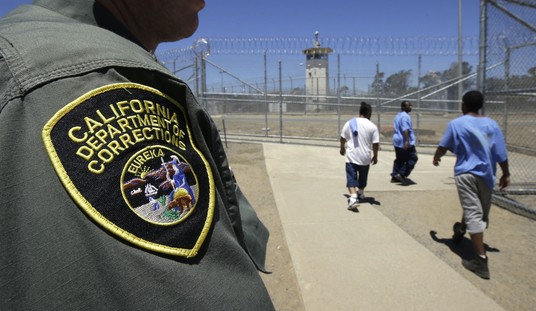Hillary Clinton’s presidential campaign is going to be studied for years as a virtual laboratory experiment designed to test precisely how much insincerity, duplicity, and faithlessness a group of subjects can force themselves accept.
For the moment, the left has been willing to embrace the delusion that Hillary Clinton has honestly turned her back on just about every policy position she held only a few years ago. They can pretend that she has genuinely evolved on the 1994 crime bill. They can convince themselves that the Hillary Clinton who once definitively declared her intention to oppose legal status for gay marriage and illegal immigrants is now a champion for both causes. They can deceive themselves into believing that the former secretary of state is committed to addressing income inequality even while Wall Street executives give the press on the record quotes asserting that the former New York senator will be their woman in the White House.
They can convince themselves of all this and more; for the good of the Democratic Party of course. After all, she’s all they’ve got. But it might prove to be a bridge too far to ask liberal voters to deceive themselves about the nature of Clinton’s commitment to campaign finance reform even as questions about the propriety of the Clinton Foundation’s fundraising practices continue to mount and she sets a course to raise nine figures from high-dollar donors.
In mid-April in what The Washington Post described as a brief interview with the paper – very brief – the former secretary of state insisted that she hopes to fix the country’s “dysfunctional” post-Citizens United campaign finance reform system as president. “When The Post asked about the role of Priorities USA Action, a pro-Clinton super PAC currently trying to raise hundreds of millions of dollars to help her campaign, Clinton shrugged her shoulders and said, ‘I don’t know,’” the paper reported.
Hillary Clinton’s commitment to campaign finance reform will start precisely when her presidential campaign ends. At least, that’s what she wants her supporters to believe. And, like so many of Hillary Clinton’s evolutions, many on the left are willing to suspend disbelief. After all, she’s all they’ve got.
“One of Hillary Clinton’s biggest applause lines in her early days on the campaign trail has come when she talks about getting big money out of politics—even when she’s talking to the big-money donors,” Bloomberg’s Jennifer Epstein reported. “It’s one of the paradoxes of a campaign that regularly employs populist rhetoric while courting plutocrats.”
The early outreach by Clinton and campaign chairman John Podesta to potential Priorities donors is the clearest signal yet that the group is a smart place for the left-leaning wealthy to park their cash. Last week, the involvement of Clinton’s 2008 political director, Guy Cecil, solidified. In London this week, Cecil hasn’t formally started his work yet, but he’s expected to be key strategic voice and a reassurance that Hillaryworld is all on the same page, even without the formal coordination that is forbidden by law.
Michael Vachon, an aide to George Soros, said he’s been fielding calls on the billionaire’s behalf from Priorities aides since Clinton launched her campaign last month. Soros, who gave $1 million to Priorities in the 2012 cycle, has not yet made a financial commitment, Vachon said.
…
Clinton has floated a low-ball goal of raising $100 million for her campaign to spend in the primaries, and the energy from California donors suggests she’s well on her way.
The liberal publication Mother Jones noted on Wednesday that the Clinton campaign has thus far refused to disclose who the candidate’s bundlers are. “Because of the outsize role that bundlers play in paying the bills for would-be presidents, advocates for campaign finance reform have long called for a robust system of disclosure,” Mother Jones reporter Patrick Caldwell noted. “But under current law, it’s up to each candidate to decide whether the names of these fundraisers will ever become public.” So far, Clinton has decided against it, though that has not stopped her from lamenting the rules of a system of that she takes full and voluntary advantage.
As for that family charity and all those speaking fees which are linked by corrupt implication, the Clinton’s efforts to defend their own conduct is starting to land with a thud even among liberals. Of the myriad indications that the foundation and the family accepted funding from dubious sources in exchange for access to the well-connected former first family, the Clintons have always contested that the foundation did noble, philanthropic work and it is thoughtless of anyone to question that. But Columbia University Earth Institute director and committed liberal economist Jeffrey Sachs did just that on Friday.
“There’s is a lot of money sloshing around and it’s — everything is blurred, and it’s not good,” Sachs conceded. “And there is a lot here that is real.”
“When you have somebody like Jeffrey Sachs who has been involved in one international relief effort after another saying that the Clintons actually got in the way of getting relief to people who needed it the most, that becomes more than a political problem,” MSNBC host Joe Scarborough observed.
There’s only so much credulity a person can summon in themselves in order to avoid facing uncomfortable truths before they begin to resent that condition. Eventually, Clinton’s duplicity will catch up with her, and those who were compelled to lie to themselves for the cause will cease to maintain that charade cheerfully. It seems that some on the left are already outwardly expressing frustrations with the “congenital liar” that is set to become the party’s standard-bearer. Maybe Sachs is an outlier, or maybe he’s a harbinger of things to come.







Join the conversation as a VIP Member